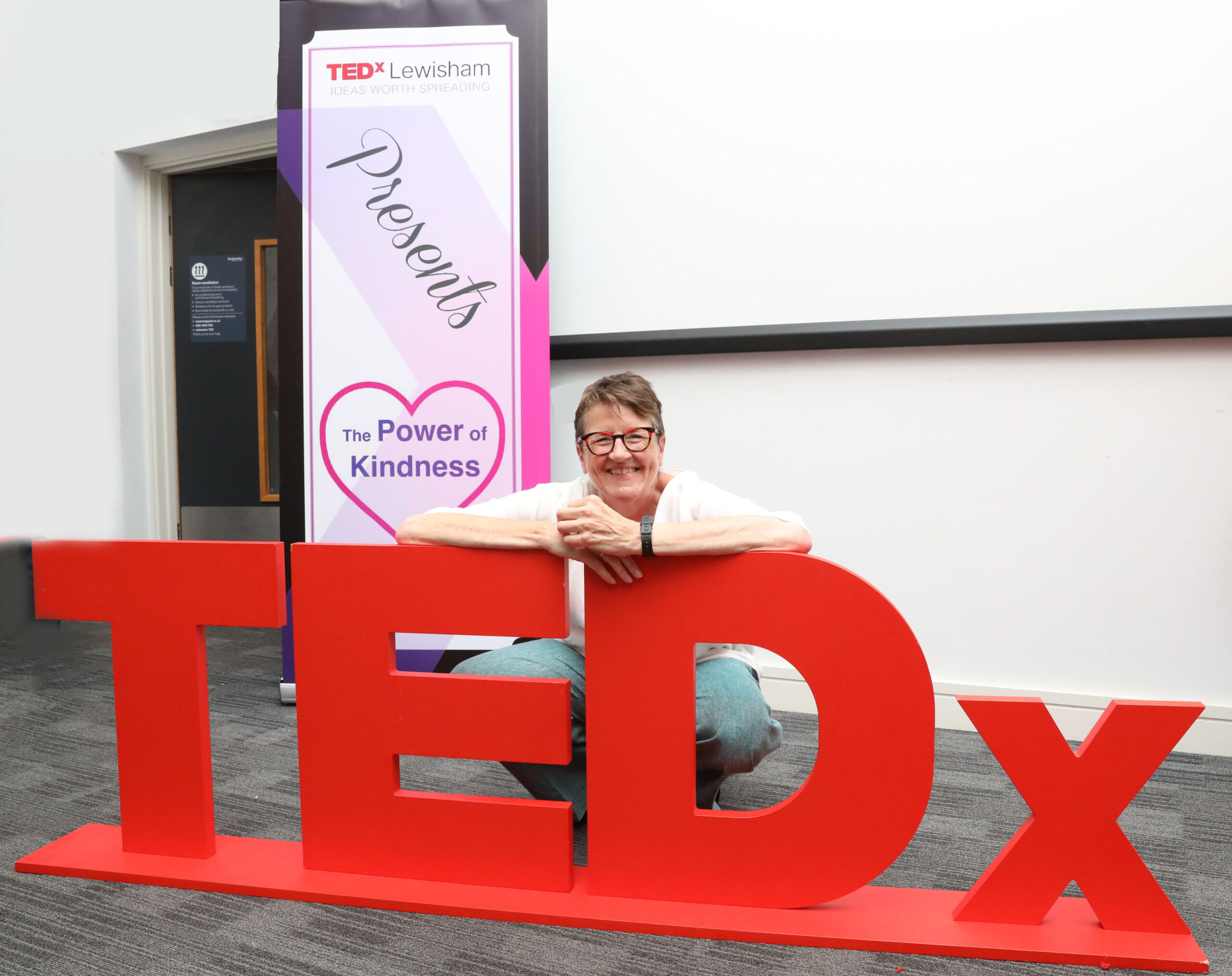Speak and claim your voice
Women are half the world’s population, but they are not half the world’s public voice. For myriad complex reasons from being too busy with other responsibilities to oppressing perfectionism, women are not taking up opportunities to speak in public, they are not presenting themselves as published experts and they are hiding their light under a bushel.
History tells us that women don’t have the right to speak in public. Sounds wrong, doesn’t it, especially in this day and age? But, historically, women have been systematically denied permission to speak in public and it has taken its toll.
Our right to speak in public is a product of history – public speaking is a man’s job. And it is also a product of socialisation – we raise girls to be perfect, while raising boys to be brave (Reshma Saujani, TED 2016). This lopsided situation makes no sense. It’s bad for the business bottom line, bad for equality and balance, bad for the advancement of society. It is bad on so many levels and we can all help to change this for the better.
Women have no right to speak in public

Penelope being domestic, working at her loom
Mary Beard, in her book entitled Women & Power: A Manifesto takes us all the way back to Ancient Greece for example after example of women being told they have no right to speak publicly about anything of importance. Their jurisdiction is the things within their purview, ie the home. Beard starts with Homer’s Odyssey almost 3,000 years ago when Odysseus’ son Telemachus told his mother, Penelope, that speaking in the public forum is his responsibility and that she should return to her quarters to concentrate on her own domestic work, the loom and the distaff: “ … speech will be the business of men, all men, and of me most of all; for mine is the power in this household.”
Roll forward to 1928 and the Daily Express said that radio listeners felt women’s voices were monotonous. In 1945, the Sunday Dispatch observed that women were too emotive in their delivery. Too monotonous. Too emotive. You can’t win!
Apparently, we did not fully trust women to read the news in the UK until Angela Rippon became a ‘permanent’ newsreader in 1975.
30 years ago (8 September 1988), Punch published a cartoon by Riana Duncan that summed up this refusal to let women be heard. The cartoon depicts five men and one woman sitting in an office meeting. Miss Triggs makes a suggestion. The chairman replies:
“That’s an excellent suggestion Miss Triggs.
Perhaps one of the men here would like to make it.”
This repeated denial of the right to speak may well exacerbate the unequal presence of women in senior positions. A Cranfield School of Management report (2017) shows that women hold fewer than three in ten (28%) of directors’ seats in the boardrooms of FTSE 100 companies.
No right to speak becomes reluctance to speak
I used to be the person clinging to the podium so you couldn’t see my hands shaking, knees locked to stay upright, and my breath so shallow that I sounded as if I was about to burst into tears. When I heard male colleagues saying things like “I don’t know why you’re so frightened, I love speaking!” I felt even more like an impostor, drowning in self-doubt. Then one day, in a leadership team meeting, a colleague called Michael invited me to share some examples of how I had successfully developed a new business area. He gave me a broad, encouraging smile and I started to speak. My reward? An interested audience wanting to know more and a round of applause for my initiatives. Michael gave me the right to speak and what I had to say was of value to my audience.
Repetition is creating self-doubt

One clear result of centuries of telling women they have no right to speak in public is a learnt self-doubt about the right to be taken seriously, constantly seeking approval and acceptance. I so often hear women saying things like:
- What right do I have to be here, taking up people’s time and space?
- Who am I to be speaking alongside all these important people?
- I feel really uncomfortable doing personal PR and self-promotion
- This is doomed to fail. What if they don’t like my message?
This self-doubt manifests as fear of public speaking or that fabulous Greek word, glossophobia. A recent YouGov poll shows public speaking as the biggest fear in Britain (alongside fear of heights), for two in three adults (67%). It affects us all, but women are twice as likely as men to say they are ‘very afraid’. Young people are also more likely than their older counterparts to be afraid of public speaking, even speaking on the phone. It has serious symptoms, from pounding heart and dry mouth to brain freeze and the inability to think on your feet. And the worst symptom of all? As many as two in five adults would pass on their dream job if it meant facing their biggest fear. Is fear of speaking in public holding you back when the ability to do so is so very fixable.
Men are socialised to be brave. Women are socialised to be perfect. Look out for differences in the way (inexperienced) male and female colleagues speak. I remember attending graduate training presentations. When it was the turn of the men to present, they came across as confident and compelling in their delivery, making them more convincing and memorable. In contrast, the women generally shared clearer and more considered information, but you could feel their fear – see their hands shaking, hear their voices trembling.
Elsewhere, I have set out ways to befriend your nerves and make them work for you so that when you stand up to speak you feel assured, confident and empowered.
Speaking in public is more than ever before an essential life skill
There are so many reasons for all of us to develop some proficiency as public speakers:
- Getting a job and subsequent career progression. It’s not just about successfully handling the interview stage, but also the ability to speak in public usually appears high up employers’ wish lists
- The importance of standing out from all the information that bombards us on social media
- Showcasing your knowledge and expertise
- Increasing your self-confidence
- Developing and improving communication and leadership skills
- Empowering you to effect change. In the words of John F Kennedy, “The only reason to give a speech is to change the world”. While most of us might not reach such lofty heights, we do speak to persuade, to change hearts and minds
- And, of course, the almost inescapable major celebration where you need to say a few words – big birthday, wedding, anniversary, etc.
And for women, there is a further reason. Women have points of view that are different and merit being heard. Every time someone speaks, they take an opportunity to change how people think, feel and act. Why would we want to exclude half the world from that opportunity?
#BalanceforBetter and reclaim the right to speak – a job for us all


Women in particular often tell me they get really nervous simply introducing themselves, be it in a meeting or in networking situations. The result is that they miss out. They might avoid networking opportunities. They might miss what others are saying as they worry about what they’re going to say or that other people might question their authority to speak. But it’s not just women who miss out. By taking the ‘silent’ option, we all miss out on their thoughts and ideas.
It is not a question of capability, but rather the need for support and reassurance. Public speaking is not a skill we are born with; it is a skill we learn. Women can and should support each other, but men are also vital in encouraging people to speak up. #BalanceforBetter couldn’t be more real.
In the home and the classroom
Schools are starting to offer public speaking training, but it’s far from being all schools and far from reaching all children. Public speaking is a life skill that is good for the individual and good for business. It needs to be on the National Curriculum, so that everyone leaves school with the ability to speak in public.
In addition to learning public speaking, we need to address other social issues that are holding women back in this space. For instance, socialising girls for perfection is teaching half the population to attain perfection before going public; time gobbled up by their primary responsibility as carers. Instead, we need to be showing girls that they have something of value we want to hear and showing them how to find their voice.
In the office
Leaders/managers need to think about colleagues speaking in public and make it part of their ongoing development, perhaps by building it into Performance Development. If, for instance, you have a team member who is reluctant to speak up in meetings, give them a specific speaking task in the next meeting. If you have another colleague who tends to talk too much, invite them to take on a supportive role and only speak to reinforce the views of the colleague who is learning to speak up.
At conferences and public events
We need to address the underrepresentation of women as conference speakers. Although some sectors/organisers set gender quotas for speakers, most don’t. We need to reframe speaking in public as a privilege and an opportunity – to share something we are passionate about, to increase our network, to meet new people, etc. For women, this may mean accepting invitations and seeking out opportunities to speak. For men, consider giving or sharing your invitation with a female colleague.
Don’t be afraid to ask for help. TED talks, for instance, always provide their speakers with coaching support – it’s good for the speakers and ensures their speeches are what’s needed for the event. So, if you need support, then ask for help from the organisers or find your own coach/mentor; look for opportunities to practise in front of colleagues and friends, or at a speaking club, etc.
Eradicate the urge to apologise and find more positive expressions. For instance, “Sorry, I don’t have the experience of other speakers here today” becomes “I am here to share with you the views of the younger generations”. People invite you to speak because they believe you have something important to say that is of value. If a conference organiser neglects to make it clear why they want you to speak at their event, ask them. Remember this reason and remind yourself every time any doubt creeps in.
We all need to support and reinforce each other when we speak. We all have that primeval hardwiring to be afraid (fight/flight/freeze) and to seek acceptance and approval from the group, our audience. When someone, especially a woman, speaks up in a meeting, and assuming you agree, of course, voice your support and agreement.
Pass me the microphone, please!

Everyone has the right to speak and women, in particular, need to speak up and exercise that right. Take those opportunities to speak … in a meeting, in support of a colleague, at an event. You’ll love how good it feels when you hear the applause of an appreciative audience. Women are half the world’s population, so their opinions are important. Find your voice and personify #BalanceforBetter
Now You’re Talking!
Comments are closed.






Oh I’m so with you on the points you raised. And your opening line is so true too: Women are half the world’s population, but they are not half the world’s public voice. In my work I’ve met too many women who wouldn’t dream of claiming their right to voice their opinions or share their knowledge. Let alone speak in public. It’s such a shame but hopefully your post will inspire more women to speak up more often!
Hi Ute
Thanks for this. It breaks my heart when people are silenced by a fear that is oh so fixable. Let me know if I can help any of your women.
Lyn
Wow. You journeyed through my life. Even yet, I find that the expectation of the people I am talking to has an effect. Some women do not like a woman speaker. Perhaps it reminds them of missed opportunities.
Enjoyed your post, thank you.
That’s heartening to hear. Thanks Susan.
Your experience seems to reaffirm the importance of understanding your audience before you take the ‘stage’ and finding out how best to connect with them. Let me know if you want to bounce any ideas around.
Lyn
Thanks Lyn, this is one of the things I still need to work on and it’s good to hear your experiences. Lots here for me to reflect on.
Thanks for reading, Shirley. I hope your reflections are going well. I have a very pragmatic approach to public speaking coaching that really helps people find their voice. If I can ever be of any help to you or support your work, please do get in touch. Lyn
Schools could do so much to redress the balance across the curriculum. Many people are not used to the sound of their own voice or are made to feel that it is ugly because speaking (confused with talking) is discouraged in school. I remember reading aloud being commonplace, and a Spoken Word competition for example.
I couldn’t agree more. Sadly, schools often don’t have budget and, because public speaking isn’t on the National Curriculum, they don’t have resources in place. Coaches can only do so much for love.
I hated reading aloud at school. We had to do it in English and in French and German (if we were studying them). I used to get so nervous that I couldn’t breathe and would try to complete the reading in a single breath. As my oxygen reserves ran down, I increasingly sounded as if I was about to burst into tears, much to the concern of my classmates. What we missed was any advice on HOW to read aloud. Even that may have helped.
Thank you for reading
Lyn
This was a really enjoyable and fascinating read Lyn. I gasped when I got to the sentence about Angela Rippon. I remember her appearance so well. Just a child myself at the time but all that was spoken about (if my memory serves me!) was how she looked and her legs. So shocking, yet that was exactly what happened. How must she have felt? I am grateful at least that for my teenage daughter, there are opportunities to speak at school. The younger teens may not always take them but there certainly seems to be a shift. I’ve nodded along to your post devouring every word. Such a shame that it all rings so true. Thanks for sharing this.
Thank you, Nicky. I am so pleased to hear your daughter is getting speaking opportunities at school. I hope she’s enjoying it. We need more of this. Ideally, it would get onto the National Curriculum